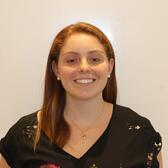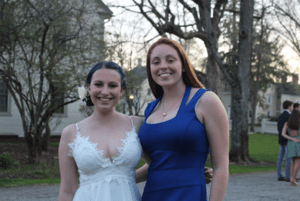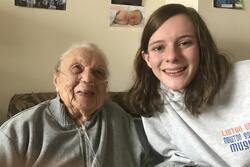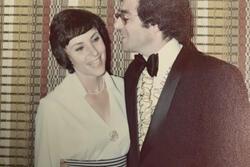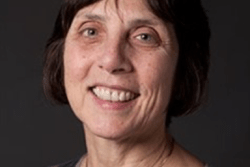She Has Pink Hair and Just Doesn't Care
Lucy is easy to find. It’s easy to spot her bobbing pink hair in the crowd, though it might have a blue or purple undertone now. Even before she started dying her hair last year, Lucy made herself known. Whether it’s by singing at the top of her lungs – with perfect pitch, by the way – or boldly introducing herself to strangers left and right, Lucy is not like everyone else; she is completely and utterly comfortable being herself, and that’s where our stories intertwine.
I met Lucy Binswanger my sophomore year at Deerfield Academy. Like I said, she stuck out like a sore thumb. My high school has a very conformist social culture; all the girls dress and act the same. The predictability of Barbour jackets, Jack Rogers, Brandy dresses, and pearl earrings is nearly comical. But Lucy was always different. And although I will never be as daring as her, we have something very important in common: we’re both Jewish.
I would estimate that out of the approximately 650 students at my high school, about 10 of them are Jewish. Perhaps there are a handful more who don’t openly identify as Jewish, but I’ll never know. After only one year at Deerfield I’d adapted to better fit the predominantly Catholic community; I became a master at hiding my Jewish identity, and learned to not disturb the status quo. Then Lucy came in. She was loud, proud, and ready to sing Jewish prayers at the top of her lungs anytime, and anywhere. She openly embraced her Jewish heritage in a way I’d been taught to avoid. A High Holiday adventure in Northampton early in the year jump-started our relationship. We became friends immediately. She has become one of my closest friends, one of very few people I truly trust.
Despite her openness about her faith, Lucy’s relationship with Judaism hasn’t always been smooth sailing. Constant moving to different types of communities, questioning of faith, and discovering a love for singing have all changed and shaped how Lucy perceives her religion.
Imagine: the hot California sun beats down as you walk to middle school. A new school, a fresh start, you tell yourself. You feel happy in the sun. The kids seem nice enough, that is, until you hear what comes out of their mouths. “Since you’re Jewish, are you in an arranged marriage?” Your face turns beet red with misunderstanding more so than embarrassment. Coming from a Philly suburb with a highly concentrated Jewish population, Lucy was rattled by this experience to say the least. She couldn’t respond.
Moving from place to place makes it hard to establish meaningful relationships and makes it easy for kids to assume things about you. In Palo Alto, a predominantly Catholic neighborhood, the middle schoolers simply didn’t know anything about Jews because they hadn’t interacted with them. But the impact was much more profound than its initial intention. At first, Lucy began to seriously question her faith. She wondered if there really was a higher power, and how she could reconcile this newfound doubt with Judaism, the religion she had grown to love. Later, this process of challenging Judaism made Lucy’s connection to her faith stronger.
Luckily, Lucy found another way to re-strengthen her Jewish faith: she found a Cantor. And she discovered singing. It started with traditional Jewish songs and prayers, from L’chah Dodi to Sh’ma. Chanting and singing became the same, and as Lucy prepared for her Bat-mitzvah, she found herself singing in the shower, humming during the day, and itching to sing more. And, in the process of discovering her passion and talent for singing, she reconnected with her faith. Chanting at her Bat-mitzvah in front of hundreds of gathered family and friends gave her the confidence to sing in public. Today, Lucy is a leading star of musical theater and theater productions at Deerfield, and loves belting out new songs. She’s also once again a proud Jew, and doesn’t hide her religious identity.
What I find so inspiring about Lucy is that she always bounces back. She is shamelessly herself. And while she’s faced numerous difficulties while following her path, Lucy has taught me to not fear. If I don’t feel like I belong, I can make my own damn niche, and, chances are, I’ll find other people there just like me. Just as Lucy has found her place as an atheist Jew, as a person who struggles with anxiety, and as an incredibly talented actress, I am reassured that I too will find my place someday.
Lucy is a resilient, beautiful, strong Jewish woman. I am so grateful to have her as a friend, and I know that, as Jewish women, we must stand together and support one another.
This piece was written as part of JWA’s Rising Voices Fellowship.

